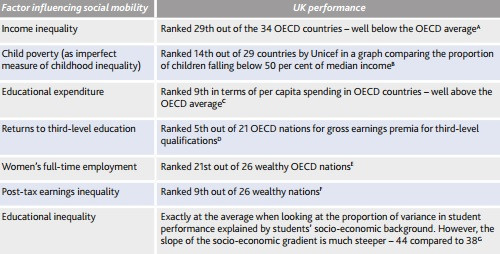UK Social Mobility: People Too Dependent on Parents' Income, Warns TUC

Social mobility in the UK is in a sorry state as people's life chances remain too dependent on their parents' income, rather than their own education and ability.
According to research from the Trades Union Congress (TUC), the UK has the joint highest level of earnings persistence – the extent to which people's incomes are associated with those of their parents – amongst advanced economies.
The organisation revealed that the only other country with levels as high as the UK's is Italy [Fig 1].
"This lack of social mobility holds millions of people back and means that they don't get a fair share of the benefits of a growing economy, such as decent pay and educational opportunities," said Frances O'Grady, the general secretary of the TUC.
"Worse still, rising inequality means that the price people pay for a lack of social mobility is getter bigger.

"But while few people in this country would argue against social mobility, successive governments have a poor track record of tackling it. When it comes to income inequality and full-time employment rates for mothers, the UK is ranked well below our global competitors."
The report also argued that the government should do more to increase full-time maternal employment rates through high quality flexible working and affordable childcare.
The TUC said this would also tackle many of the other barriers to social mobility, such as child poverty and pre-tax income inequality.
The organisation also called on employers and the government to do more to reduce the "pay and career penalties" associated with part-time work.
© Copyright IBTimes 2025. All rights reserved.






















